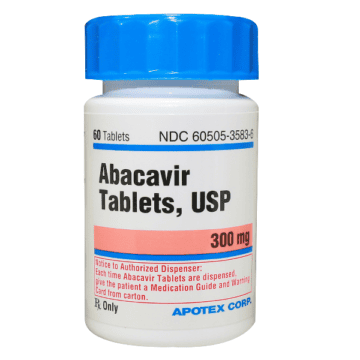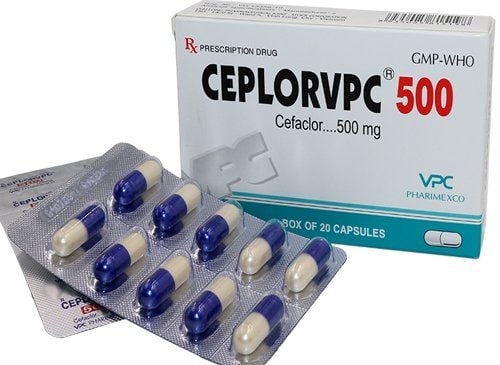This is an automatically translated article.
Rosemazol is a drug in the group of antiparasitic, anti-infective, anti-viral, antifungal drugs with the main ingredient Fluconazole 150 mg. Finding out enough information and ingredients helps patients know how to use the drug effectively.
1. What is the use of Rosemazol?
1.1. What is Rosemazol? Rosemazol is a class of drugs used to treat parasites, infections, viruses and fungi with the composition Fluconazole 150 mg. Drugs manufactured by TW3 Pharmaceutical Joint Stock Company circulated in Vietnam and are registered with the registration number VD-21368-14. The drug is in the form of hard capsules.
1.2. What does Rosemazol do? Fluconazole is effective against most strains of Candida, including end-stage fungal infections in AIDS patients who are resistant to other antifungal agents such as Nystatin, Ketoconazole and Clotrimazol. Accordingly, the drug is indicated for the following cases:
Meningococcal infection caused by Cryptococcus. Esophageal candidiasis in patients with AIDS. In general, Rosemazol is intended for patients who are intolerant of common antifungal agents or when these drugs do not work. Fluconazole is relatively well tolerated by patients and can be taken orally, so it is very convenient for patients who need long-term fungal treatment. Rosemazol is also used to prevent Candida infections in bone marrow transplant recipients undergoing chemotherapy or radiation therapy. In addition, the drug is also used to prevent serious fungal infections (such as Candida, Cryptococcus, Histoplasma, Coccidioides immitis) in HIV-infected patients.
2. How to use the drug Rosemazol
2.1. How to use Rosemazol The drug Rosemazol is taken orally.
2.2. Dosage of the drug Rosemazol Dosage and duration of treatment depend on the fungus causing the disease, kidney function and the patient's response to the drug. When treating fungal diseases, the drug should be used continuously until clinical and laboratory manifestations show that the disease is completely cured. Inadequate treatment may cause the disease to recur.
For patients with HIV infection and cryptococcal meningitis, long-term maintenance drug therapy is required to prevent disease recurrence.
Newborn:
first 2 weeks after birth: 3-6 mg/kg/time; every 72 hours. 2-4 weeks postpartum: 3-6 mg/kg/time; every 48 hours. Children:
Prophylaxis: 3 mg/kg/day in superficial fungal infections and 6-12 mg/kg/day in systemic fungal infections. Treatment: 6 mg/kg/day. In cases of persistent disease, up to 12 mg/kg/24 hours may be required in 2 divided doses. Do not take more than 600 mg per day. Adults:
Candida infections:
Vagina - Vagina: Use a single dose of 1 tablet (150mg)/time/day. To prevent recurrence, a dose of 1 tablet (150mg) should be used once a month for a period of 4-12 months. Oropharyngeal: The recommended dose is 1 tablet (150mg) once daily for 1 to 2 weeks. Esophageal: Take 1 tablet (150mg) once a day, for at least 3 consecutive weeks and for at least 2 more weeks after symptom resolution. Systemic fungus: First day take 3 tablets / time, the following days take 1 tablet (150mg) / 1 time / day, for at least 4 weeks and at least 2 more weeks after symptoms are gone. In case of cryptococcal meningitis: 3 tablets/time on the first day, 1-3 tablets/time/day in the following days, for at least 6-8 weeks after CSF culture results are negative. For HIV-infected patients, to avoid relapse, Difuzit should be used at a dose of 1 tablet once a day for a long time.
Prophylaxis of fungal infections: To prevent Candida infections in bone marrow transplant recipients, the recommended dose is 3 tablets (450mg)/time/day. For patients predicted to have severe granulocytopenia (neutrophil count less than 500/mm3), prophylactic fluconazole should be started a few days before neutropenia and continued for another 7 days. after the neutrophil count has exceeded 1000/mm3.
Patients with renal impairment: Patients receiving a single dose of vulvovaginal candidiasis: no dose adjustment is required.
Handling missed dose: Add dose as soon as you remember. However, if the interval between the next dose is too short, skip the missed dose and resume the dosing schedule. Do not take a double dose to make up for a missed dose.
Management of Overdose: During the first 8 hours after administration, if there are no manifestations of overdose or other unexplained clinical signs or symptoms, then active supervision may not be necessary. The respiratory and circulatory status must be monitored until the patient is awake, breathing normally and everything is stable. In case of severe overdose, hemodialysis should be performed.
3. Contraindications of the drug Rosemazol
Fluconazole is contraindicated for use in patients with hypersensitivity to fluconazole or any of its ingredients. Contraindications to co-administration with terfenadine in patients receiving fluconazole at doses of 400 mg or higher are based on the results of multiple-dose drug interaction studies. Co-administration of cisapride or astemizol is contraindicated in patients receiving fluconazole.
4. Notes when using the drug Rosemazol
Caution when used for people with impaired kidney or liver function. Pregnancy: There are no adequate and well-controlled studies with the use of fluconazole in pregnancy. However, there have been reports of multiple congenital malformations in neonates whose mothers received high doses of fluconazole (400-800 mg/day) to treat fungal infections caused by Coccidioides immitis during the first trimester of pregnancy. The relationship between fluconazole use and these effects is unclear. Therefore, fluconazole should be used during pregnancy only when the potential benefit outweighs the possible risk to the fetus. Lactation: Fluconazole is excreted in milk at concentrations similar to those in plasma. Therefore, people who are breastfeeding should not take this medicine.
5. Side effects of the drug Rosemazol
Common:
Neurological: Headache, dizziness (about 2% of patients). Gastrointestinal: Nausea, vomiting, abdominal pain, diarrhea (approximately 1.5-8.5% of patients) Uncommon: Liver: transient elevation of serum transaminases and bilirubin (from 1.5 to 3 times the limit) above of normal). Skin: Rash, itching. Rare:
Blood: Eosinophilia, anemia, leukopenia, neutropenia, thrombocytopenia. Hepatic: Elevated serum transaminase levels (8 times or more upper limit of normal) and drug discontinuation. Skin: Scaly skin (mainly in people with AIDS and cancer), Stevens - Johnson syndrome. Other side effects: Fever, edema, pleural effusion, oliguria, hypotension, hypokalemia, anaphylaxis.
6. Drug interactions
Fluconazole increases the plasma concentration of drugs such as sulfonylurea antidiabetics (tolbutamide, glyburide, glipizide), phenytoin (epilepsy), theophylline (asthma drug), astermizol (anticoagulant). histamine), coumarin anticoagulants (warfarin), antivirals (zidovudine), cisapride, tacrolimus and ciclosporin when used concurrently. Therefore, it is possible to increase the effects and toxicity of these drugs.
Concomitant use of fluconazole and rifampicin may affect the pharmacokinetics of both drugs. Rifampicin reduces the absorption and half-life of fluconazole, because the dose of fluconazole needs to be increased when used concomitantly.
There have been reports of interactions with concomitant use of fluconazole with rifabutin or fluconazole with zidovudine in HIV-infected patients. Fluconazole increases plasma concentrations and area under the curve (AUC) of rifabutin and its major metabolite.
7. How to store Rosemazol?
Keep the medicine in a sealed container, out of the reach of children. Store at room temperature, in a dry place, away from sources of heat and direct light. Throw away the medicine if not used after 14 days. Rosemazol is a group of drugs that treat parasites, infections, viruses, and fungi with the main ingredient Fluconazole 150 mg. To ensure the effectiveness of treatment and avoid unwanted side effects, patients need to strictly follow the instructions of the doctor, professional pharmacist.
Follow Vinmec International General Hospital website to get more health, nutrition and beauty information to protect the health of yourself and your loved ones in your family.
Please dial HOTLINE for more information or register for an appointment HERE. Download MyVinmec app to make appointments faster and to manage your bookings easily.













